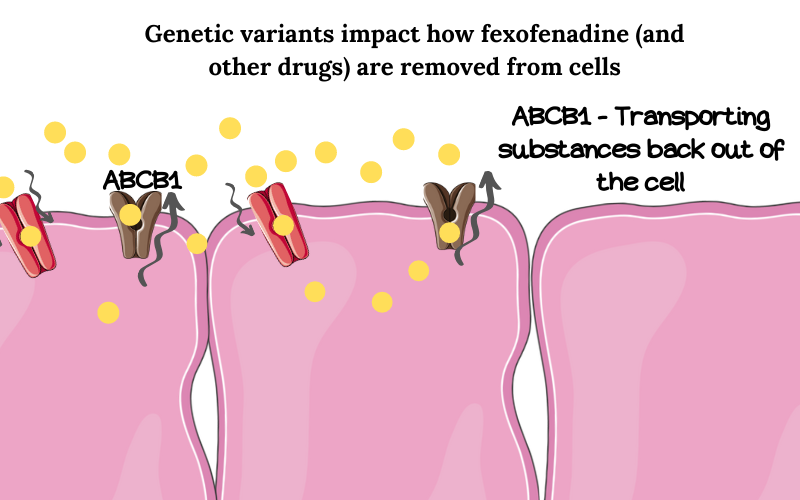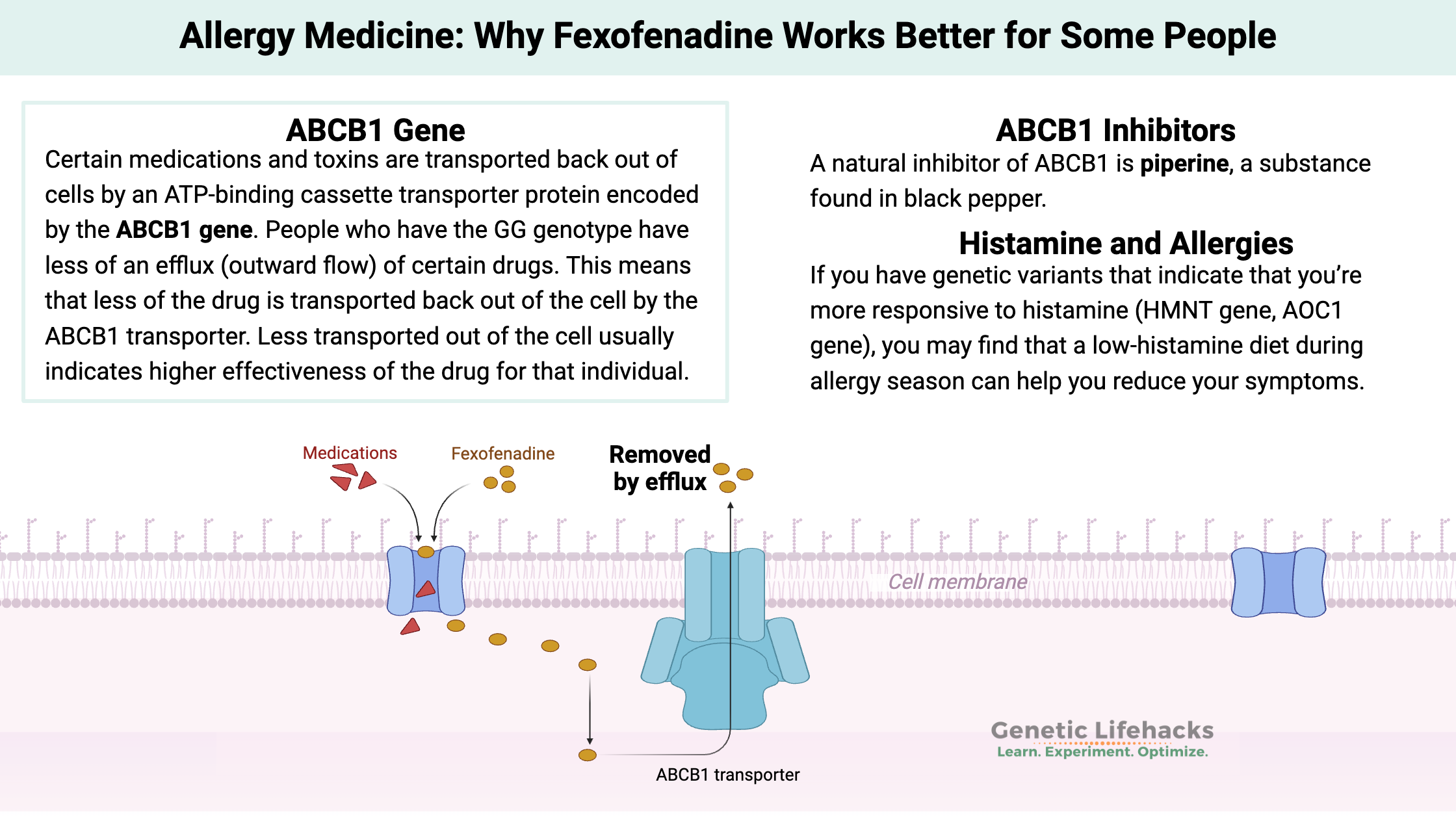Ever wonder why a certain medication may work great for a friend and do nothing for you? Interestingly, it could involve specific genes that transport the medication into and out of your cells.
Fexofenadine (brand names are Allegra, Aller-ease) is a commonly used allergy medication. Say that you have watery eyes and a drippy nose during spring allergy season, and take some fexofenadine to help with the symptoms.
Once swallowed, that medication dissolves, gets absorbed, and then transported to the cells where it acts. Then, it needs to stay inside those target cells to have an effect.
How the medication stays inside the cells – instead of being transported right back out of the cell – is where genetics comes into play.
Certain medications and toxins are transported back out of cells by an ATP-binding cassette transporter protein encoded by the ABCB1 gene.
In the epithelial cells lining your intestines, the ABCB1 proteins are involved in the pumping of substances back into the intestinal lumen.
Imagine taking a fexofenadine pill: it then dissolves, gets absorbed, and then part of that gets pumped back into the intestines to be eliminated.

Genetic variants in ABCB1 affect how much of the substance stays in the cell compared to how much gets excreted back out of the cell.
In general, it is a good thing for the body to get rid of a substance that it thinks might be toxic. But when it comes to medications, this can create problems. While an allergy medication not working well for you isn’t really a big deal, the real problem comes when trying to keep chemotherapy drugs inside of cancer cells. Thus, this gene has been studied in depth for drugs that treat cancer.
ABCB1 Genotype Report:
Lifehacks:
If you carry one of the variants above, you may be wondering what you can do to increase the effectiveness of your allergy medicine during this pollen season.
Related Articles and Topics:
Are you allergic to grass pollen? It may be genetic.
Allergies are usually due to a mix of genetic susceptibility and being exposed to certain triggering molecules. Several different gene variants have ties to an increased risk of grass pollen allergies.
Top 10 Genes to Check in Your Genetic Raw Data
These are 10 genes with important variants that can have a big impact on health. So check them out, cross them off your list if you don’t have them — and read the articles to learn more if you do carry the variant.

